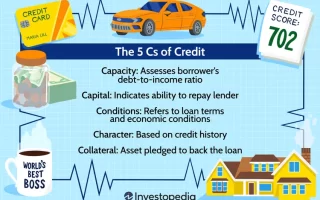Over the past few years, many Americans have refinanced to get lower market interest rates, saving money on their monthly mortgage and other loan payments.

Unfortunately, with few refinancing options, many student loan borrowers tell us they still feel stuck with high interest rates after they graduate and find a job.
With many borrowers unable to refinance, one of the only ways to avoid paying unnecessary interest is to pay off high-interest loans as soon as possible. Under the Fair Lending Act, your lender or servicer is not allowed to assess any penalties or fees if you pay off your private student loans early.
We recently published a report outlining how the payment processing policies of private student lenders and loan servicers can be a distraction for responsible borrowers who want to pay off their loans faster. If you have several loans with the same credit servicer (the company that sends you a bill each month) and you don’t provide instructions, your servicer usually decides how to distribute any payments that exceed the amount due.
Leaving this decision up to them is not always the best option.
When you submit your payment, your student loan servicer should receive instructions from you about which loan your extra payment will be applied to.
Here’s why it’s good to give instructions to your service person:
- If you put your extra cash toward the higher rate loan first, you can save hundreds of dollars or more in extra interest payments and get out of debt faster.
- If you don’t tell them what to do, your servicer will make additional payments based on their needs, in most cases spreading your money across all the loans on your account.
- This means you will pay off your debt slowly and pay more interest over the life of the loan.
To help you explain to your servicer what to do with your money, we’ve put together some sample instructions you can send to your servicer asking them to apply any additional payments to your higher rate loan . Helpful service providers will usually accommodate your request. You should make sure your service provider responds to your request so you know if additional instructions need to be sent.
You can download a sample letter to mail to your provider or you can provide instructions via the “Send a Message” or “Contact Us” features when you are logged into your account on the provider’s website using the text below:
I am writing to provide you with instructions on how to apply for a payment if I send more than the minimum due amount. Please apply the payment as follows:
- After applying the minimum amount payable for each loan, any additional amount must be applied to the loan that has the highest interest rate.
- If there are multiple loans with the same interest rate, apply the excess amount to the loan with the lowest outstanding principal balance.
- If any extra amount over the minimum liability ends up being used to pay off a personal loan, then apply the remainder of my payment to the loan with the next higher interest rate.
I may find an opportunity to refinance with another lender at a lower rate. If this lender or any third party makes a payment to my account on my behalf, you must use the instructions above.
Keep these instructions. Please follow these instructions for all future overpayments. Please confirm that these payments will be processed as specified or please explain why you are unable to follow these instructions.
Thank you for your cooperation.
You will need to save the messages you send as a record.
For most borrowers, it makes sense to put any extra payments towards the loan with the highest interest rate – it’s the fastest way to save the most money in the long run. For other borrowers, saving more money may not be their primary goal. You may be interested in paying extra each month on certain loans to improve your credit, qualify for a mortgage, or eliminate your monthly bill. You need to weigh all your options.
You can also file a complaint online.
If you have questions about paying off your student loans, check out our Student Debt Repayment tool to learn how to resolve your student loan debt.
For more information about private student loans and other consumer financial products or services, visit Ask the CFPB.



